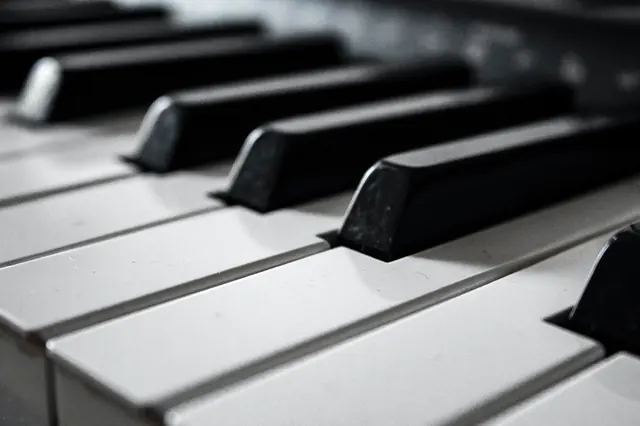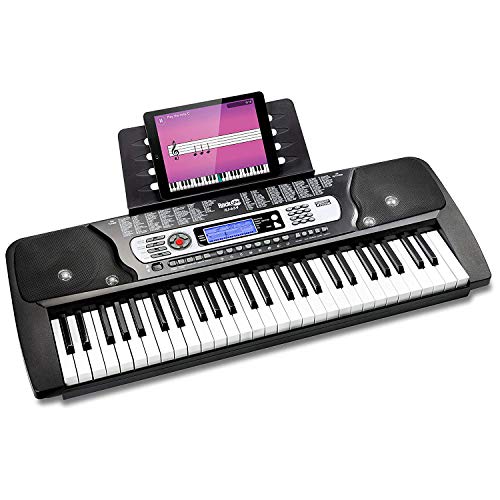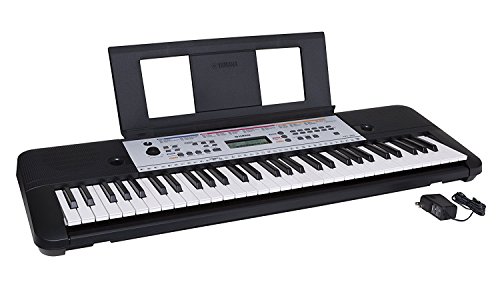
Learn To Play The Piano
Learning To Play The Piano
Have you ever wished you knew how to play the piano? It’s a skill that can come in handy in so many situations – from serenading a date to playing at a family gathering. But learning to play can seem like a daunting task, especially if you’ve never played before.
Fortunately, there are plenty of resources out there to help you get started, including online lessons, YouTube videos, and apps. And with a little practice, you’ll be playing “Chopsticks” in no time!
Piano lessons for beginners
Are you interested in learning to play the piano? If so, you’ve come to the right place! In this blog section, we’ll be discussing some basic piano lessons for beginners. By the end of this section, you should have a good understanding of how to get started with playing the piano.
One of the first things you need to do when learning to play the piano is to find a good teacher. A good teacher can make all the difference in your playing ability and enjoyment of the instrument. Once you’ve found a good teacher, they will likely start you off with some basic exercises and theory. These exercises will help you develop your technique and begin to understand how to read music.
As you progress, you’ll likely want to start learning some popular songs. This can be a great way to stay motivated and continue practicing. You may also want to consider joining a band or orchestra, as this can be a great way to improve your skills and meet other musicians.
Piano playing is a lifelong skill that can provide you with endless hours of enjoyment. We hope that these beginner’s tips have helped get you started on your musical journey!
Why playing the piano is beneficial
There are many benefits to playing the piano. For one, it can help improve your hand-eye coordination. Playing the piano also requires split-second timing and decision making, which can help improve your reflexes. Additionally, playing the piano can help alleviate stress and tension, and can even be therapeutic. And finally, playing the piano is a great way to socialize and meet new people.
Tips for beginners
If you’re thinking about learning to play the piano, congratulations! You’re embarking on a wonderful journey that will bring you years of enjoyment. But where do you start? Here are a few tips for beginners:
1. Find a good teacher. This is probably the most important step in learning to play the piano. A good teacher will help you progress quickly and avoid developing bad habits.
2. Start with the basics. Don’t try to tackle difficult pieces right away. Learning the basics will give you a solid foundation on which to build your skills.
3. Be patient. Learning to play the piano takes time and practice. Don’t get discouraged if you don’t see results immediately; stick with it and you’ll eventually get there!
The basics of learning to play the piano
The piano is a versatile instrument that can be used for a variety of genres, from classical to jazz to pop. If you’re interested in learning to play the piano, there are a few basics you need to know. In this blog post, we’ll cover some of the essential tips for beginners who want to start learning the piano.
One of the most important things to do when starting to learn the piano is to find a good teacher. A good teacher will be able to help you learn the basics of playing the piano and can give you feedback on your progress. They can also help you choose the right Piano for your needs. There are different types of pianos available on the market, from acoustic pianos to digital pianos, and each type has its own advantages and disadvantages. You should also make sure you have a good Piano bench or stool so that you can sit comfortably while you play.
Once you have a good teacher and a comfortable place to sit, you can begin learning how to play some basic chords on the piano. A chord is simply two or more notes played together. There are many different chords that you can learn, and each one has a different sound. As you learn more chords, you’ll be able to play more complex songs.
In addition to learning chords, you’ll also need to learn how to read sheet music. Sheet music is a written representation of the notes that you’ll be playing on the piano. It can be daunting to look at a sheet of music for the first time, but once you get the hang of it, reading sheet music will become second nature.
As you continue to practice and learn more about playing the piano, you may want to consider joining a Piano club or taking Piano lessons. These can be great resources for learning new techniques and expanding your repertoire.
How to find a good piano teacher
There are many different ways to learn to play the piano, and finding a good piano teacher is an important part of the process. Here are a few tips on how to find a good piano teacher:
1. Ask around. Talk to your friends, family, and other musicians to see if they have any recommendations for good piano teachers in your area.
2. Do some research. Once you have a few names of potential teachers, look them up online and read any reviews you can find.
3. Meet with the teachers. Once you’ve narrowed down your list, set up meetings with each of the teachers to see if they’re a good fit for you.
4. Try a lesson. Once you’ve found a teacher you’re comfortable with, try out a lesson to see if they’re able to help you learn the piano in a way that’s right for you.
The different types of pianos
There are many different types of pianos available on the market today. Each type of piano has its own unique features and benefits. Here is a look at some of the most popular types of pianos:
1. Upright Pianos: Upright pianos are the most commonly found type of piano. They are also the most affordable type of piano, making them a great choice for beginner piano players. Upright pianos come in a variety of sizes, so you can choose one that best fits your needs.
2. Grand Pianos: Grand pianos are the largest type of piano and offer a rich, full sound. They are a great choice for experienced piano players who want to create a powerful musical experience. Grand pianos can be quite expensive, so they may not be the best option for beginner piano players.
3. Digital Pianos: Digital pianos are becoming increasingly popular due to their versatility and portability. Digital pianos offer a wide range of features, making them a great choice for both beginner and experienced piano players.
4. Electric Pianos: Electric pianos are a great choice for those who want to create unique sound effects or playin a band. Electric pianos are becoming increasingly popular due to their versatility and portability.
5. Acoustic Pianos: Acoustic pianos are the traditional type of piano and offer a classic piano sound. They are a great choice for those who want to create a classic musical experience. Acoustic pianos can be quite expensive, so they may not be the best option for beginner piano players.
How to choose the right piano for you
When it comes to choosing a piano, there are a few things you need to keep in mind. First, you need to think about what type of piano you want. There are grand pianos, upright pianos, and digital pianos. Each one has its own advantages and disadvantages. You need to decide which one is right for you based on your needs and preferences.
Second, you need to consider your budget. Pianos can be quite expensive, so you need to make sure you have the funds available to purchase one. If you’re not sure how much you can afford, it’s a good idea to start by looking at used pianos. You can often find good quality used pianos for a fraction of the price of a new one.
Third, you need to think about where you’re going to put the piano. If you have a small home or apartment, you might not have room for a grand piano. In that case, an upright or digital piano would be a better option.
Finally, you need to take into consideration your skill level. If you’re a beginner, you might want to start with a cheaper and simpler option like a digital piano. As you get better, you can upgrade to a more expensive and complex piano.
Pianos are a big investment, so you want to make sure you choose the right one for you. By keeping these factors in mind, you can be sure to find the perfect piano for your needs.
Conclusion
The piano is a beautiful and versatile instrument that can be enjoyed by people of all ages. If you’ve always wanted to learn to play the piano, there’s no time like the present. With a little practice and patience, you’ll be playing your favorite songs in no time.
























